I've been at IFA the last few days, a consumer electronics tradeshow and Germany's answer to CES.
While you'll admittedly see a landfill worth of e-waste generating questionable tech that no one needs, it never fails to impress with all things weird and wacky — and a few items you are desperate to own.
I'm always on the lookout for hardware designed with sustainability in mind, and here are some products by European startups and scaleups that caught my attention this year:
Minibrew (The Netherlands)
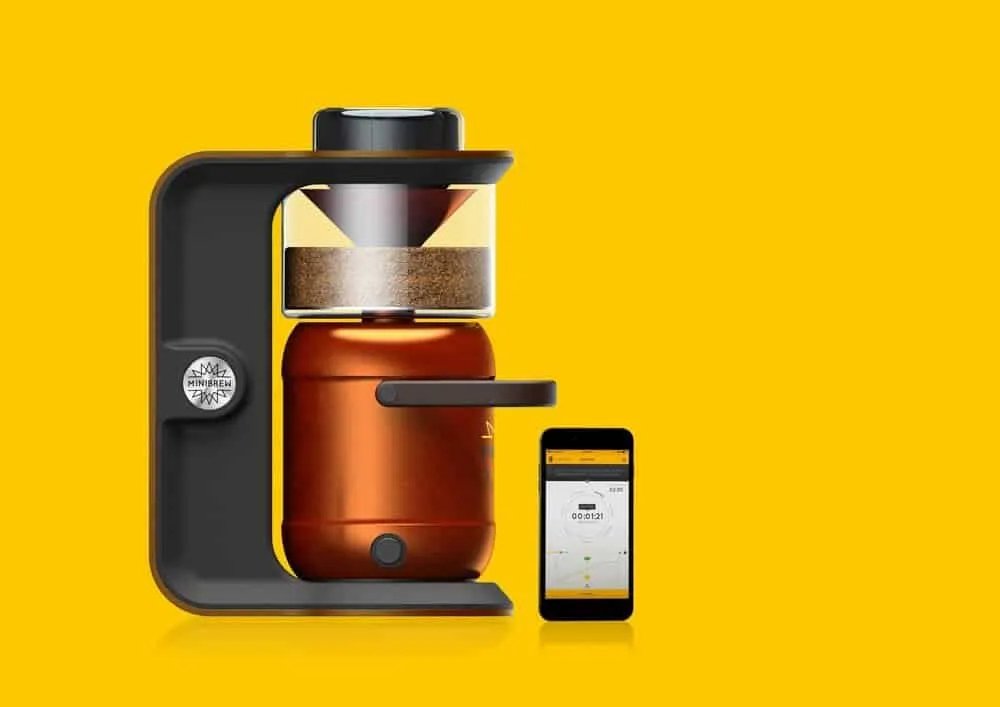
Back in Australia, we used to brew our own beer and ginger beer because alcohol there is really expensive.
It's not difficult to brew your own using traditional methods, but it's a bit of a process in terms of sterilisation and ensuring the bottles don't explode.
So, for booze enthusiasts, Minibrew offers a far easier alternative.
Founded in 2015 in Utrecht, the company showcased CRAFT GEN 3, its fifth model.
As well as a commitment to improving its product offering over time (fingers crossed that the earlier versions are still fully operational), the company has shipped over 3400 minibrews.
Retailing for €999 (a premium model is available for more hardcore homebrewers and small-batch professionals), the purchase includes:
- 1 x Clean-in-place system & other accessories
- 1 x MiniBrew Smart Keg 3.0
- 1 x Smart Keg Stand, Tap & other accessories
- 1 x Starter Pack (this included cleaning materials).
Ingredients to make each kind of beer can be purchased separately.
Besides the hobbyist aspects, the sustainability benefits of your own brew kit are considerable - no transport miles, no bottles or cans, less waste etc.
Further, individuals and breweries alike can upload their recipes to the platform, and users can download their favourites providing access to brew recipes worldwide.
re:Mix (Germany)
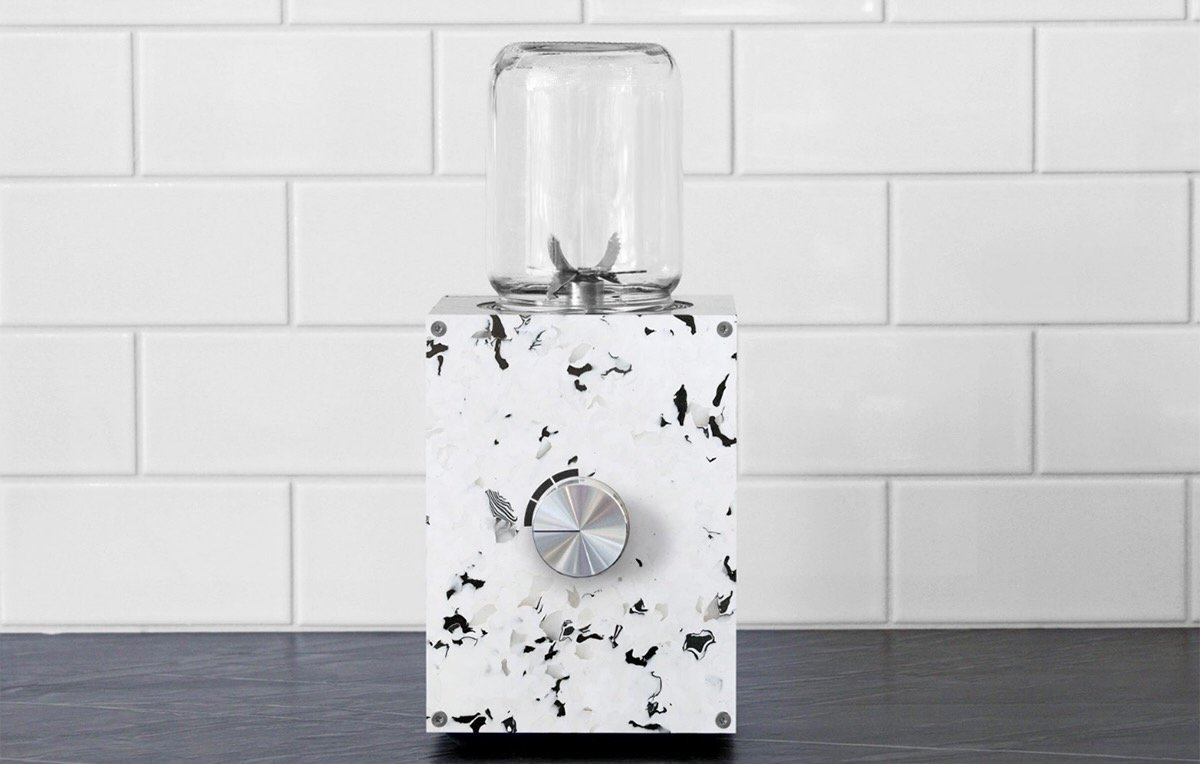
I'm sure I'm not the only person who has created a massive graveyard of broken blenders grinding nuts to make vegan cheese (I used to be a cooking teacher when I worked in sustainability).
re:Mix by OpenFunk is a kitchen mixer made for your own glass jars, is customisable, and is built to last. Imagine a blender like a Ninja Bullet, but your jars replace the traditional cup.
According to its creators, it's the first step towards our vision of a circular platform for home electronics that are built and repaired locally and never wasted.

re:Mix's outer casing is made from recycled plastic. A modular design makes re:Mix easy to repair, and upgrade, and for its parts to be replaced over time. The company offers buyback for anyone who doesn't want their blender anymore.
Devices are made in Berlin and assembled in a centre dedicated to the social participation and professional inclusion of people in need — very cool.
The company has a jar library on its website, so you know which ones you can use without damage.
re:Mix is currently available for pre-orders for €199.
Steambox (The Netherlands)
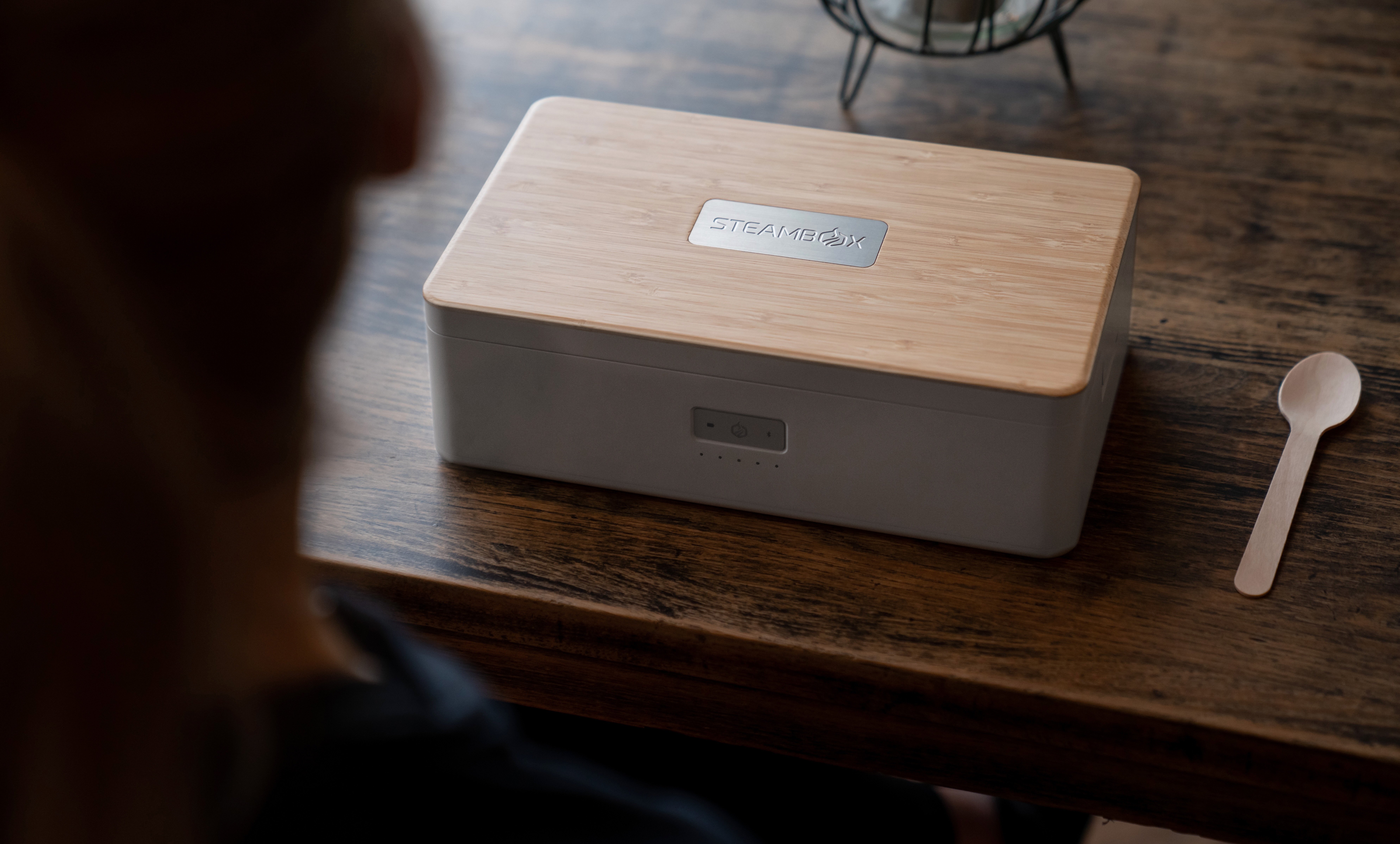
Steambox is a Dutch invention that started out with a successful crowdfunding campaign back in 2020 and got funded in less than 24 hours.
I have to say, crowdfunded IoT devices traditionally have a bad rap as so many products never came to market (I'm looking at you Skully, Tiko, and VEZO 360, to name but a few), but this is one of the hardware startups I met at IFA that might change my mind.
Steambox originally began as a crowdfunded device but now has its own online platform. Its rechargeable system can heat up to 3 meals on a single charge.
Simply pack a meal inside of Steambox, fill up the small water container and take off. When you are starting to get hungry, you add the water to a heating element and set the timer.
Depending on the type of food and starting temperature, an average meal takes 15 – 20 minutes to heat up through steam.
Steambox also has an app to control the device (with live tracking) and to gain access to recipes.
The company asserts that steaming makes food taste better and preserves nutrients throughout the heating process compared to conventional or microwave heating.
I was a kid in the 80s when thermoses were a thing. Therefore I find myself left with one question. In the days of microwaves and thermoses, do you really need an electronic lunchbox for €249?
For frequent travellers wishing to eschew bad, expensive airport food, I'm going to say yes.
Shelfy (Italy)
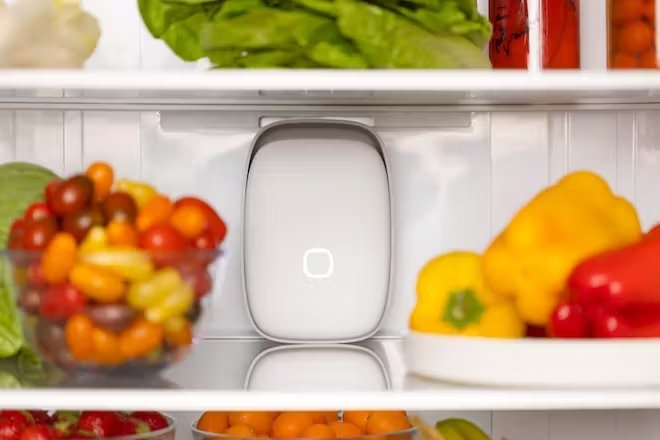
Shelfy is a smart device created by Italian startup Vitesy that makes your food last longer, reduces bacterial load and removes bad odours from your refrigerator. It's a small and compact purifier that the company says enables fruit and vegetables in the fridge to last up to 13 days longer.
Shelfy uses an innovative and sustainable nanomaterial-based photocatalytic technology since the filter doesn't need to be replaced, just washed under running water.
Photocatalysis is a safe chemical reaction that absorbs air pollutants and turns them into harmless elements. The use of this technology guarantees safety, better performance and less consumption. In this way, we make Vitesy technology sustainable and effective.
Shelfy takes in the air inside the refrigerator through mechanical ventilation and leads it towards the photocatalytic filter, where the pollutants are destroyed and not mechanically retained.
It's only available on Indiegogo, but it's not the company's first rodeo with other successful campaigns for this device and a variety of funky air purifiers. You can order Shelfy on Indiegogo for €109.
These devices show that startups can still be successful with hardware despite the supply chain and manufacturing challenges that plagued all during the pandemic.
And humble beginnings can lead to something bigger. For example, I'm a big fan of UK-based connected home startup Smarter with its fridgecam. From humble beginnings in 2014, the company has successfully raised over €10.4 million with its products sold in over 3,000 stores across the UK, Europe and North America with big-name partners that include Amazon and Curry's.
Fairphone 5 (The Netherlands)
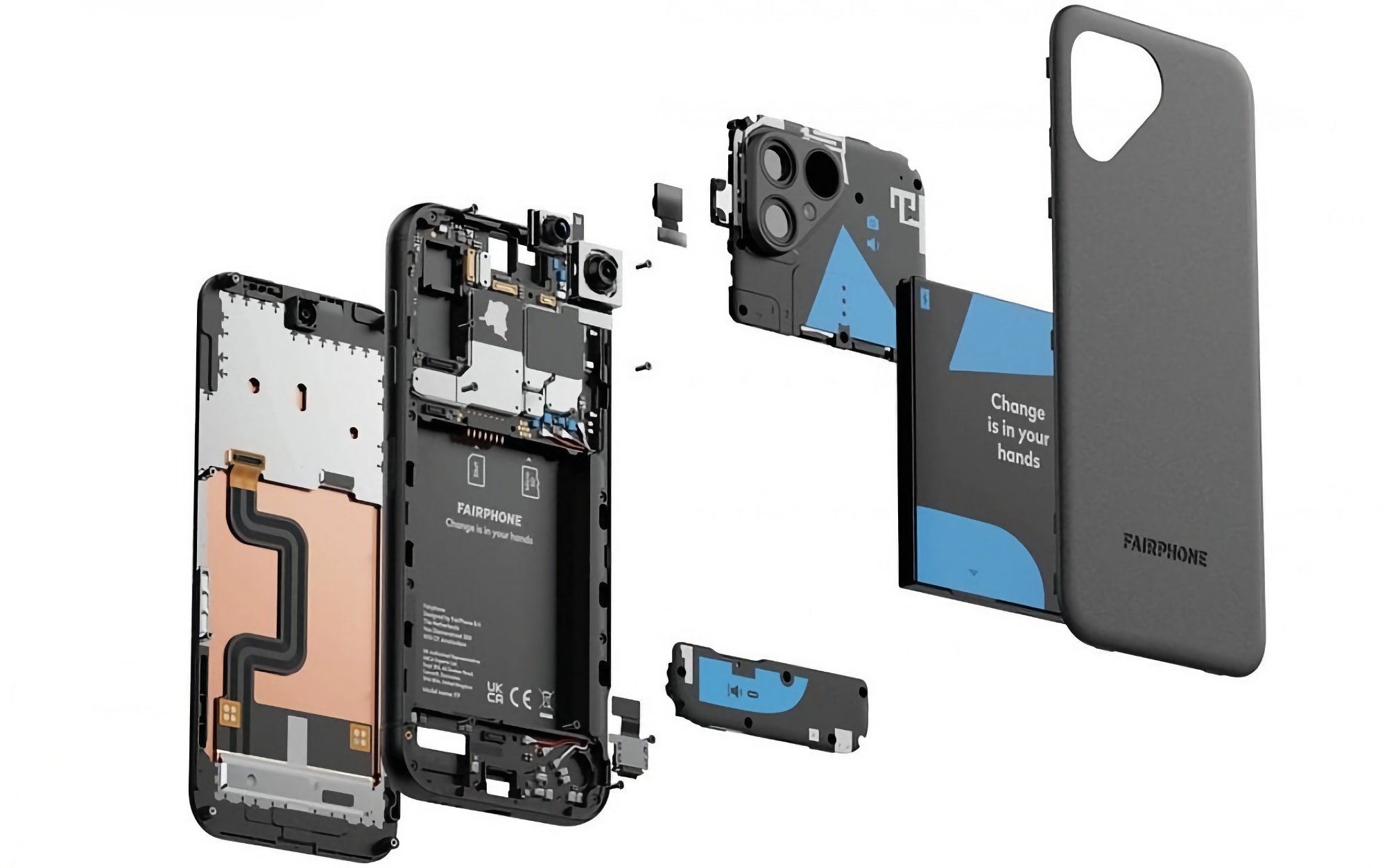
Fairphone showcased the Fairphone 5 at IFA, levelling up Fairphone's impact, device longevity, design and sustainability with a unique and powerful IoT chipset from Qualcomm Technologies, Inc., a stand-out five-year warranty, and an unprecedented amount of fair and recycled materials inside. We need such efforts to become industry standards rather than nice-to-haves.
Its 4200 mAh battery is replaceable and combines fast charging with all-day power for user convenience, along with Eco Charge mode to make the battery last longer. The Fairphone 5 battery also holds its capacity for over 1000 complete cycles for years to come.
The chipset is designed for industrial-grade hardware or devices with a longer lifetime and helps Fairphone provide longer-than-usual software support until 2028.
After that, Fairphone commits to extending support until 2031 and aims for 2033, giving users eight to ten years of software support — more than twice the standard support other Android providers offer. In an era when planned obsolescence (a process of deliberately ensuring that the current product's current version will become out of date or useless within a known time), this is a VERY big deal.
It's also worth mentioning that over 70 percent of the 14 focus materials used in the device are either from recycled or fairly mined sources or support responsible production with unique Fairphone and partners' impact projects.
The Fairphone 5 follows in the footsteps of Fairphone 4, which was the first electronic waste (e-waste) neutral handsets on the market, meaning the company compensates your phone by responsibly recycling an equal amount of electronic waste or taking back and repairing phones so they get a second life.
It is available at a suggested retail price of €699.
Lead image of Shelfy provided by Vitesy.



Would you like to write the first comment?
Login to post comments